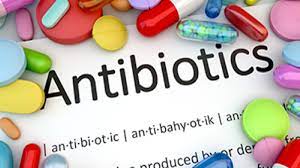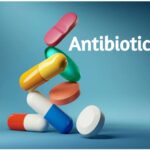What Happens If You Double Dose Antibiotics?

Antibiotics are powerful medicines that fight certain infections and can save lives when used properly. They either stop bacteria from reproducing or destroy them. Before bacteria can multiply and cause symptoms, the immune system can typically kill them. White blood cells (WBCs) attack harmful bacteria and even if symptoms do occur, the immune system can usually cope and fight off the infection.
Sometimes, however, the number of harmful bacteria is excessive, and the immune system cannot fight them all. Antibiotics are useful in this scenario. The first antibiotic was penicillin. Penicillin-based antibiotics, such as ampicillin, amoxicillin, and penicillin G, are still available to treat a variety of infections and have been around for a long time.
Several types of modern antibiotics are available, and they are usually only available with a prescription in most countries. Topical antibiotics are available in over-the-counter (OTC) creams and ointments.
Why are antibiotics important?
The introduction of antibiotics into medicine revolutionised the way infectious diseases were treated. Between 1945 and 1972, average human life expectancy jumped by eight years, with antibiotics used to treat infections that were previously likely to kill patients. Today, antibiotics are one of the most common classes of drugs used in medicine and make possible many of the complex surgeries that have become routine around the world.
If we ran out of effective antibiotics, modern medicine would be set back by decades. Relatively minor surgeries, such as appendectomies, could become life threatening, as they were before antibiotics became widely available. Antibiotics are sometimes used in a limited numbers of patients before surgery to ensure that patients do not contract any infections from bacteria entering open cuts. Without this precaution, the risk of blood poisoning would become much higher, and many of the more complex surgeries doctors now perform may not be possible.
What Happens If You Double Dose Antibiotics?
Accidentally taking one extra dose of your antibiotic is unlikely to cause you any serious harm. But it will increase your chances of experiencing side effects, such as pain in your stomach, diarrhoea, and feeling or being sick. If you accidentally take more than one extra dose of your antibiotic, are worried or experiencing severe side effects, speak to your doctor or call emergency lines as soon as possible.
Some medical professionals have concerns that people are overusing antibiotics. They also believe that this overuse contributes toward the growing number of bacterial infections that are becoming resistant to antibacterial medications.
According to the Centers for Disease Control (CDC), outpatient antibiotic overuse is a particular problem. Antibiotic use appears to be higher in some regions, such as the Southeast. Use of carbapenems, a major class of last-line antibiotics, increased significantly from 2007 to 2010.
Side effects of antibiotics
As with any medicine, antibiotics can cause side effects. Most antibiotics do not cause problems if they’re used properly and serious side effects are rare.
The common side effects include:
- being sick
- feeling sick
- bloating and indigestion
- diarrhoea
Some people may have an allergic reaction to antibiotics, especially penicillin and a type called cephalosporins. In very rare cases, this can lead to a serious allergic reaction (anaphylaxis), which is a medical emergency.





